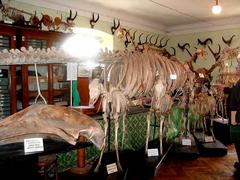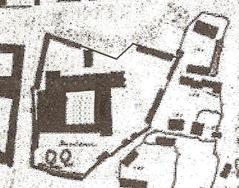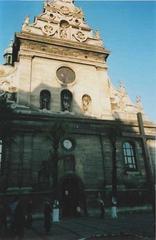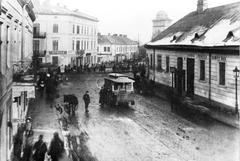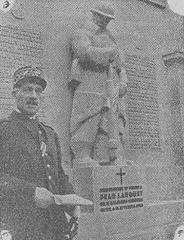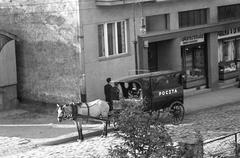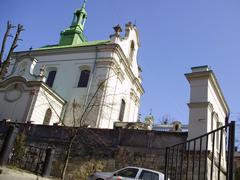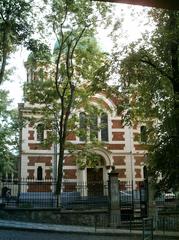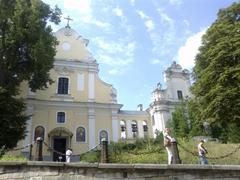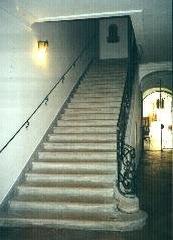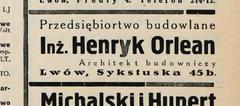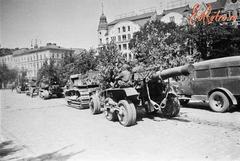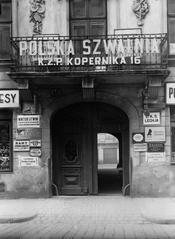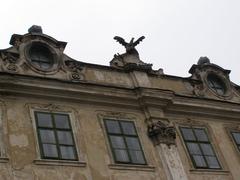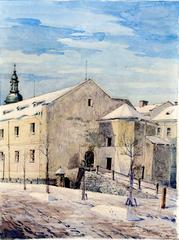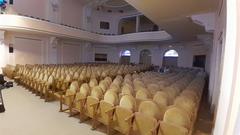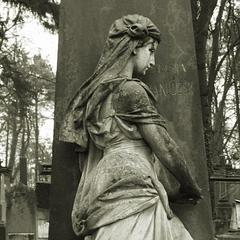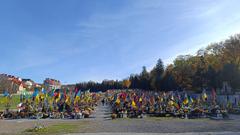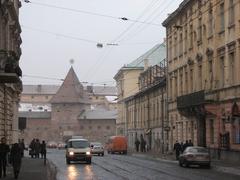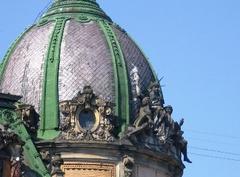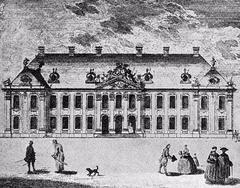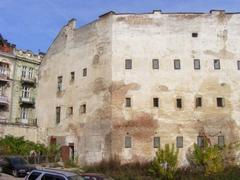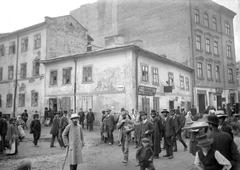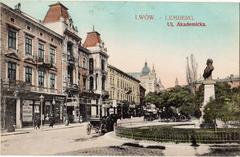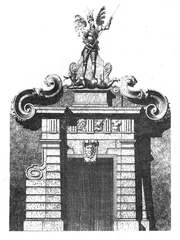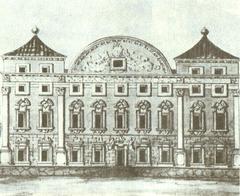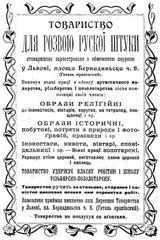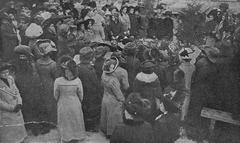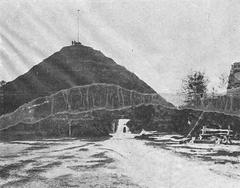
Golden Rose Synagogue in Lviv: Visiting Hours, Tickets, and History (2025)
Introduction
The Golden Rose Synagogue, also known as the Nachmanowicz or Turei Zahav Synagogue, stands as one of Lviv, Ukraine’s most significant historical and cultural landmarks. Although mostly in ruins today, it remains a powerful symbol of Jewish heritage, resilience, and remembrance. This guide provides a comprehensive overview of the synagogue’s history, its cultural significance, practical visitor information—including visiting hours, ticketing, accessibility—and recommendations for making the most of your time in Lviv’s historic Jewish quarter.
Table of Contents
- Historical Overview
- The Golden Rose Synagogue Memorial Today
- Visitor Information
- Nearby Attractions
- Frequently Asked Questions (FAQ)
- Summary and Recommendations
- References
Historical Overview
Origins and Construction (1580–1582)
The Golden Rose Synagogue was established between 1580 and 1582, commissioned by the prominent Jewish financier Yitzhak ben Nachmanowicz. Its architect, Paulus Italus (Paweł Szczęśliwy), introduced Renaissance architectural elements unique to Eastern European synagogues (Liquisearch; E-A-A). The synagogue featured a prayer hall with a rib-vaulted ceiling, pointed lunettes, an alabaster Torah ark, and later additions like a vestibule and women’s gallery, which enriched both its functionality and artistic appeal.
Naming and Early Significance
Initially known as the Nachmanowicz Synagogue, it was seized by Jesuits in 1606 amid religious tensions. According to local legend, Rosa bat Ya’akov, the daughter-in-law of Nachmanowicz, played a vital role in regaining the synagogue for the Jewish community after a ransom was paid in 1609. The name “Golden Rose” (Di Goldene Royz) commemorates her contribution. Rabbi Yitzhak ben Shemuel HaLevi marked the event with the composition of “Shir Ge’ula,” recited annually after Purim (Liquisearch).
Architectural Flourishing
The synagogue was celebrated for its Renaissance architecture—balanced proportions, arched windows, and decorative stonework. It also featured Hebrew inscriptions and regional motifs, reflecting the community’s identity (E-A-A). The synagogue became known as the TaZ Synagogue after Rabbi David HaLevi Segal (the TaZ), who prayed there in the mid-17th century.
Role in Lviv’s Jewish Community
By the early 20th century, Lviv’s Jewish community was among the largest in Eastern Europe, comprising nearly a third of the city’s population. The Golden Rose Synagogue served as a spiritual and communal hub, surrounded by other key institutions like ritual baths and kosher butchers (The Complete Pilgrim).
Destruction During World War II
The synagogue’s fate changed tragically during the Nazi occupation in World War II. In August 1941, it was looted and desecrated, and by 1942, the Nazis had destroyed most of the building, leaving only partial ruins (RISU; Historical Sites). The destruction of the Golden Rose Synagogue became emblematic of the devastation experienced by Lviv’s Jewish community, nearly all of whom perished in the Holocaust.
The Golden Rose Synagogue Memorial Today
Today, the site is preserved as part of the “Space of Synagogues” memorial project. The remaining foundation walls and architectural fragments are integrated into a contemplative urban park designed for reflection and education (RISU). Commemorative slabs, interpretive panels, and minimalist landscaping convey the site’s layered history, while annual events such as the European Day of Jewish Culture draw visitors and locals alike.
While the memorial’s design has prompted debate within the community, it has become a focal point for both remembrance and cultural education (RISU).
Visitor Information
Visiting Hours and Tickets
- Hours: Open daily from 10:00 AM to 6:00 PM. The site is accessible year-round, but visitors should observe Lviv’s citywide curfew (midnight to 5:00 AM), during which the area is not accessible (Visit Ukraine Today).
- Tickets: Entry is free. Donations are appreciated to support ongoing preservation.
- Guided Tours: Available through local heritage organizations. Tours can be booked online, at the Lviv Tourist Information Center, or via Jewish heritage tour providers. Tours are offered in several languages.
Accessibility
The memorial is wheelchair accessible, with ramps and smooth pathways. The surrounding Old Town does have cobblestone streets, so some areas may be less accessible; visitors with mobility challenges should plan accordingly. There are no on-site restrooms, but facilities can be found nearby in cafes and public buildings.
Guided Tours and Special Events
- Guided Tours: Provide rich historical context and are recommended for a deeper understanding.
- Special Events: The site hosts commemorative ceremonies, especially during Jewish cultural festivals.
- Photography: Permitted, but visitors are asked to be respectful and avoid disturbing the memorial elements.
Nearby Attractions
Visiting the Golden Rose Synagogue places you in the heart of Lviv’s historic Jewish quarter, near several points of interest:
- Synagogue Space Memorial Complex: Includes the ruins of the Great City Synagogue and Beis Aharon Synagogue, with interpretive installations (TravelInsighter).
- Kafe Jerusalem: A Jewish restaurant offering traditional cuisine (TravelInsighter).
- Old Jewish Cemetery: One of the oldest in Eastern Europe.
- Lviv Historic Center: A UNESCO World Heritage Site.
- Armenian Cathedral and Lviv National Museum: Reflecting Lviv’s multicultural heritage.
Frequently Asked Questions (FAQ)
Q: What are the Golden Rose Synagogue visiting hours?
A: The site is open daily from 10:00 AM to 6:00 PM, with free admission.
Q: Do I need a ticket to enter?
A: No, admission is free. Donations to support preservation are welcome.
Q: Are guided tours available?
A: Yes, through local organizations and the Lviv Tourist Information Center. Advance booking is recommended.
Q: Is the memorial accessible for people with disabilities?
A: The site is wheelchair accessible, though some surrounding cobblestone streets may present challenges.
Q: Is it safe to visit Lviv and the Golden Rose Synagogue?
A: Lviv remains one of Ukraine’s safest cities for tourists, with safety measures and public shelters in place (Visit Ukraine Today).
Q: Can I take photographs?
A: Yes, photography is allowed. Please be respectful of the site’s solemn nature.
Summary and Recommendations
The Golden Rose Synagogue memorial is a must-visit for those interested in Lviv’s Jewish heritage, European history, and architecture. The site’s accessible hours, free admission, and central location make it ideal for cultural travelers. Enhance your visit by joining a guided tour, exploring nearby attractions, and honoring the site’s significance with respectful conduct. Keep updated on special events and guided tour offerings through official sources and local tourism channels.
For a more immersive experience, consider downloading the Audiala app, which offers audio guides and up-to-date information about Lviv’s historical sites.
References
- Golden Rose Synagogue Lviv: Visiting Hours, Tickets & Historical Significance (Liquisearch)
- Golden Rose Synagogue Lviv, Ukraine (E-A-A)
- Visiting the Golden Rose Synagogue Memorial in Lviv: Hours, History, and Visitor Guide (RISU)
- Golden Rose Synagogue Historical Site (HistoricalSites.se)
- The Complete Pilgrim: Historic Jewish Sites of Ukraine
- Religiana: Golden Rose Synagogue
- Visit Ukraine Today: Lviv Safety and Travel Tips
- TravelInsighter: Unique Restaurants in Lviv, Ukraine





























